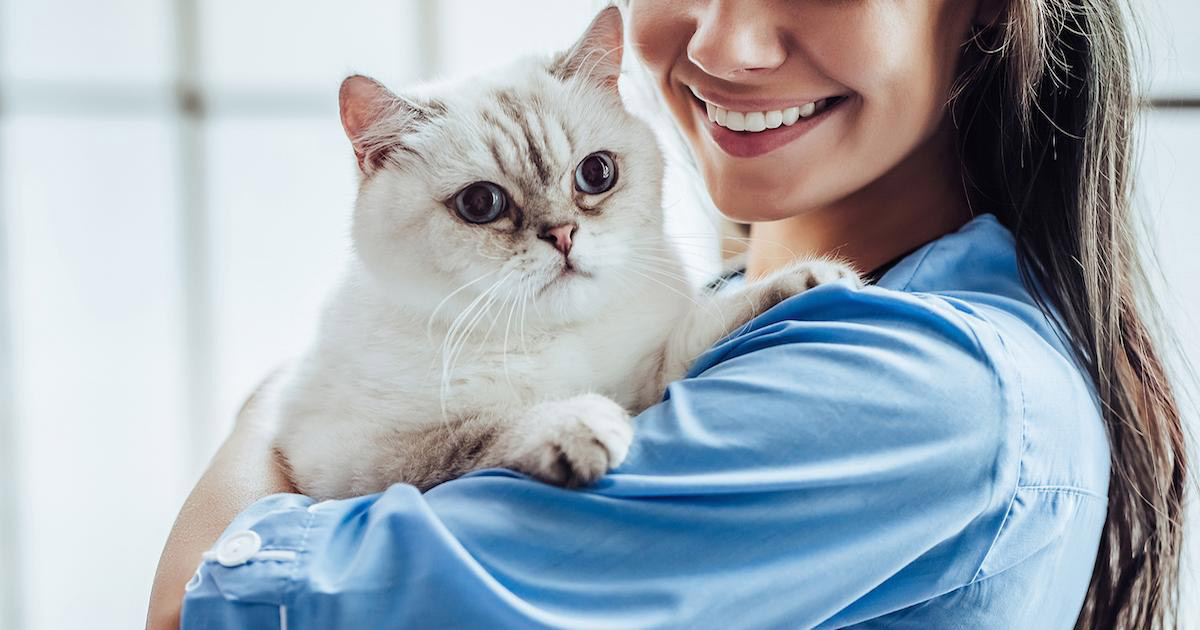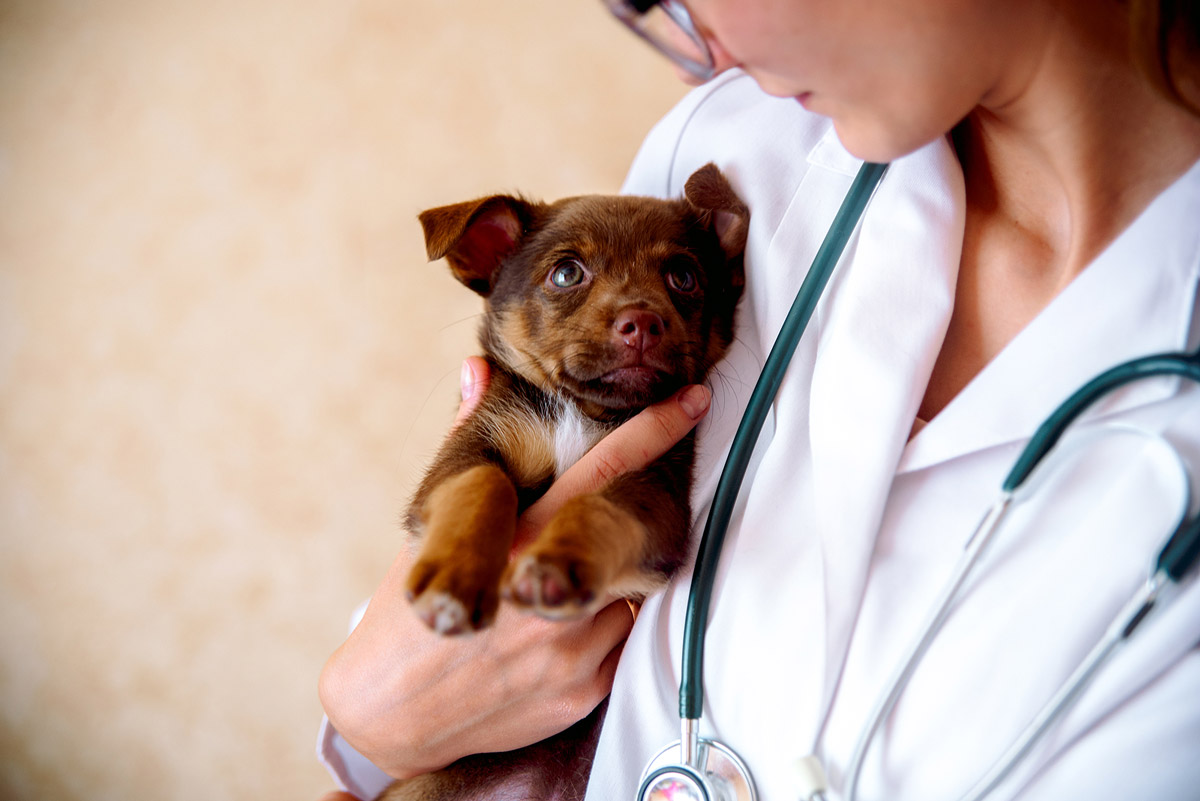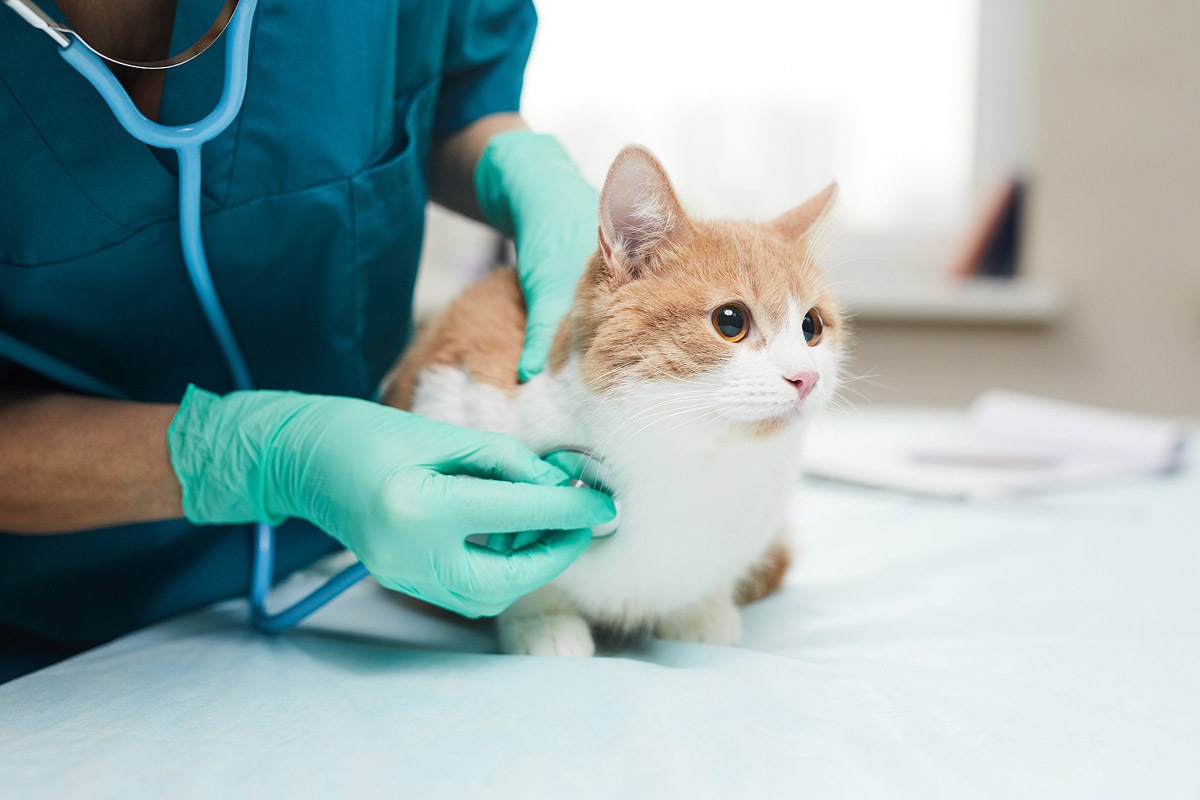Why Should You Bring Your Healthy Pet to the Vet?

If you think that a trip to the vet is only for when your pet is feeling under the weather, think again. Just like how we hoomans go to the hospital for necessary vaccinations and routine health check-ups, there are times when our pet needs to visit an animal clinic even when it seems to be in the pink of health.
Namely, these are when vaccinations, sterilisation, microchipping, and routine health and dental check-ups are needed, which are all essential to your pet’s growth and development!
Vaccinations

Without regular vaccinations, our pets are at risk of death or permanent organ system damage. To protect them against viruses and bacteria, pet owners who have puppies or kittens are required to send them for their necessary vaccinations at 6 to 8 weeks of age with subsequent boosters given every 2 to 4 weeks, until 16 weeks of age or older.
Following this primary series of vaccinations, a booster would be given 12 months later, with subsequent boosters administered every 1 to 3 years, depending on your pet’s condition and lifestyle. Prior to boarding at a pet hostel or boarding house, pets should also be given a booster 2 to 3 weeks in advance.
Note: For a more detailed guide on the necessary vaccinations required for cats and dogs, click here!
In addition to regular vaccinations, your cat or dog needs to be protected against heartworm, fleas, ticks, and intestinal parasites as well. This is because heartworms are transmitted via mosquitoes, which can cause severe damage to your pet’s lungs, heart, and blood vessels, eventually leading to congestive heart failure. Treatment takes a few months and has inherent danger, and even though a pet may be successfully treated for heartworms, there will still be permanent lung or heart damage left.
As for fleas, they serve as an intermediate host for tapeworm larvae and can cause an intensely itchy skin reaction when they suck blood from your pet, while ticks are carriers of several bacteria and protozoa that can cause disease to both dogs and humans. These include Tick Fever and Lyme Disease (which affects dogs and humans), and these tick-borne diseases are often difficult to diagnose and treat. As such, it is important to prevent ticks; prevention is a much better option than treatment.
Roundworms, hookworms, whipworms, and tapeworms are also a must to protect your pet against, as they reside in the small intestines and deprive their host of nutrients, cause diarrhoea, and can damage the intestinal lining enough to reduce its ability to digest and absorb nutrients.
Sterilisation

Ideally, cats and dogs should be sterilised at around 6 months of age, before their first ‘heat cycle’ or before they develop any unwelcome behaviour such as urine spraying or wandering. This is because the earlier the pet is sterilised, the more the health benefits. That said, pets can be desexed at any age, including during their more mature years.
Benefits of spaying female cats and dogs
- Eliminates hormone fluctuations that can cause false pregnancies
- Eliminates the urge to escape in order to find a mate (and persistent yowling and rubbing and rolling on the floor for cats)
- Eliminates the risk of uterine and ovarian cancer
- Prevents unwanted pregnancies
- Prevents uterine infections known as pyometra, which can be fatal if left untreated
- Prevents breast cancer (Cats and dogs spayed before their first heat have less than 0.5% chance of developing breast cancer, but once spayed after 3 years of age, there is no more protective benefit)
Benefits of neutering male cats and dogs
- Less susceptible to prostate disease, perineal hernias, and perineal tumours
- Eliminates the risk of testicular cancers
- Helps to control male dominance aggression problems and reduces their wandering instincts if a female on heat is nearby
- Castrated male cats are less likely to spray their offensive-smelling urine in your home to mark his territory
- Castrated male cats are often more affectionate and people-oriented.
Most sterilisations will be held in the morning, and your pet would simply be required to stay at the clinic for the day before returning home the same evening as the surgery!
Microchipping

Microchipping and licensing are mandated by the AVS for all dogs residing in Singapore for the purpose of tracing in the event of an outbreak of the deadly virus rabies. Besides that, for dog owners, microchipping ensures that your pet can be traced and returned to you if it ever goes missing and is brought to a vet clinic, neighbourhood police post, the AVS’ Animal Management Centre (AMC), or the SPCA!
Microchipping is a permanent identification system, in which a transponder embedded in a tiny glass bead that resembles a rice grain in size and shape is implanted under your pet’s neck skin. A microchip scanner can then read a code that is unique to the pet, and databases are maintained by the AVS for all licensed dogs and by microchip manufacturers for all other species — yes, dogs, cats, and even large birds can be microchipped.
If you worry about having a foreign object embedded in your pet’s body, rest assured. The microchip is coated with a non-slip material to ensure that it does not migrate away from the site of implantation, will not be rejected by the body, and is made to last longer than the lifespan of a dog.
The insertion of a microchip is also non-invasive and usually does not require anaesthesia, but kittens and puppies are advised to be at least 8 weeks old or weigh 900g, while birds have to weigh at least 100 grams.
Health check-ups

As part of having a sound preventive care regimen for your pet, regular health check-ups are a must to keep your pet as happy and healthy as possible. These health check-ups will detect diseases in their early stages of development, which provides these benefits as compared to the diagnosing of a late-stage disease:
- There will be more treatment and managements options available
- It slows down the progression of the disease
- It enables your pet to enjoy more years of good quality life
- It’s cost-saving in the long term.
Osteoarthritis (OA) is an excellent example of a disease which, if detected early, will enable your pet to live pain-free for months or years before you even notice that it is having mobility issues such as difficulty getting up and lying down, going up and down stairs, and walking slowly and unsteadily. This is because cats and some dogs are very good at hiding pain, and other chronic diseases that benefit greatly from early detection are chronic renal disease and heart disease in both cats and dogs.
The first health check-up
Whether you’ve just gotten a puppy, kitten, rabbit, or bird, your new companion will require a health examination as soon as possible, regardless of whether they’ve been guaranteed to be up-to-date with their vaccinations. This is to check on your pet’s general health, detect congenital defects (such as undescended testicles), test for skin, ear, and intestinal parasites, as well as to make sure that it is developing properly!
This vet visit is also an excellent time for you to obtain information from your vet regarding nutrition, how to maintain your pet at its ideal weight, and advice on dental care on top of starting your pet on monthly preventives for heartworm, ticks and fleas, and intestinal parasites beginning from when it is 8 weeks old.
We recommend utilising this first vet visit to plan a regular health-check schedule for your pet. At around 6 months of age, puppies and kittens will require another health check-up. Remember, your vet has the knowledge and training to provide you with accurate evidence-based scientific information that will keep your pet healthy and happy, so it’s important to heed his/her advice!
Adult: 1 to 7 years or more (Depending on pet type and breed)
At its adult stage, your pet would benefit greatly from yearly check-ups. This would include a review of your pet’s health since its previous annual check up, a physical examination, and routine blood (complete blood count and serum biochemistry) and urine tests. Your vet may recommend other tests if his physical examination detects other irregularities such as heart abnormalities.
Senior: 7 to 10 years and older
This is the life stage when chronic disease usually begins. For older pets, it’s best to schedule a check-up twice yearly as seniors will be more susceptible to ailments and may experience age-related health problems such as cataracts or arthritis. Some signs of diseases may also mimic the effects of ageing, so a professional diagnosis is required to differentiate between an underlying illness and normal behaviour for a senior pet.
From the age of 10 years, it is important for your dog or cat to be checked for signs of cognitive dysfunction. Your pet’s mental health also degrades as your pet ages, and they can suffer from depression, anxiety, and dementia just like humans do. Regular health check-ups will enable your vet to evaluate your pet’s mental needs accurately, thus providing you with advice on how to ensure that your senior friend is living happily and comfortably.
Dental check-up

By 3 years of age, 80% of dogs and 70% of cats have some level of gum disease. This is why dental check-ups are a very important part of preventive care that pet owners must uphold because in its early stages, periodontal disease may present hardly any signs or pain at all until it has developed into painful, inflamed, and infected gums with incredibly offensive breath.
Like humans, the mouth of dogs, and cats contain plaque, a sticky mixture of mucus, numerous bacteria, and food particles that coats the teeth and the narrow space between the teeth and the gum. If not removed by regular brushing, the bacteria converts plaque to hard, mineralised tartar that cannot be easily removed even with brushing. A build-up of tartar then leads to painful gum infection, loosening of the tooth, tooth loss, and even the destruction of the jawbone.
Annual dental examinations will detect teeth and gum problems in their formative stages, and regular dental cleanings by your vet will maintain your pet’s teeth and gums in a healthy, pain-free state, preventing the onset of periodontal disease.
Rabbits, hamsters, mice, and rats also need regular dental examinations. Rodents are not immune to cavities and periodontal disease, and because they possess incisors that grow continuously, insufficient gnawing can lead to overgrown incisors while injury to the incisor can lead to malocclusion. Both conditions will result in the inability to eat and starvation.
Schedule vet visits as preventive care

Preventive care is one of the easiest and most effective ways to maintain a clean slate of health for your pet, which will, in turn, contribute to your pet’s happiness and mental well-being for the long haul. Vaccinations, sterilisation, health and dental check-ups, and even microchipping are essential components of preventive care, so try not to skip out on any of them, especially when they are so readily available at veterinary centres such as The Animal Clinic!
An AVS-registered veterinary clinic that has been caring for pets since 1979, The Animal Clinic is spearheaded by a team of 15 veterinarians. With senior veterinarians that have a combined experience of more than 75 years of clinical practice and a team that is well-versed in the healthcare of not just cats and dogs but also small mammals, birds, and reptiles, pet owners can rest assured that their beloved friends are in good hands at The Animal Clinic.
Currently, The Animal Clinic is also providing telehealth services (teleconsultations and telemedicine) at very affordable prices, so if you’re ever in need of medical advice concerning your pet during this COVID-19 period, do not hesitate to reach out to them at https://animalclinicsg.smart.vet/. Alternatively, if you wish to enquire about scheduling a vaccination or sterilisation, leave a direct message on their Facebook page or give them a call and they will advise you on the nearest possible date. After all, prevention is always better than cure.
Clementi Branch
Address: Block 109 Clementi Street 11, #01-17/19, Singapore 120109
Tel: 6776 3450 / 6777 0273
After-hours emergency: 6333 5550
Katong Branch
Address: 55 Lorong L Telok Kurau, #01-63, Bright Centre, Singapore 425500
Tel: 6440 4767 / 6440 2336
After-hours emergency: 6333 5550








